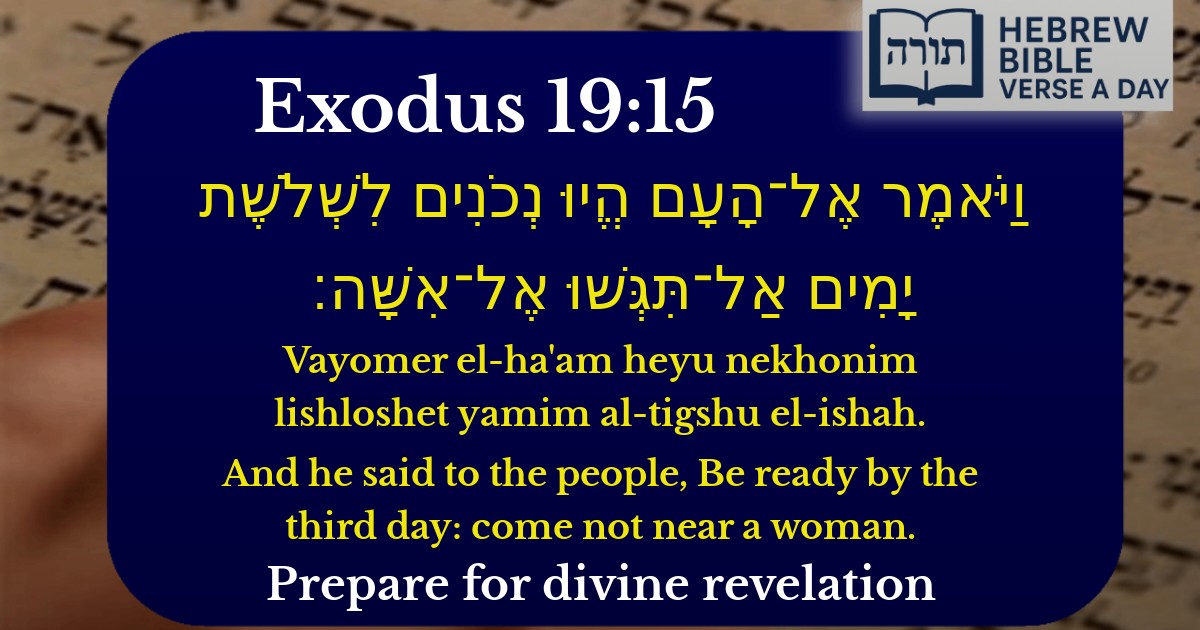Join Our Newsletter To Be Informed When New Videos Are Posted
Join the thousands of fellow Studends who rely on our videos to learn how to read the bible in Hebrew for free!
Hebrew Text
וַיֹּאמֶר אֶל־הָעָם הֱיוּ נְכֹנִים לִשְׁלֹשֶׁת יָמִים אַל־תִּגְּשׁוּ אֶל־אִשָּׁה׃
English Translation
And he said to the people, Be ready by the third day: come not near a woman.
Transliteration
Vayomer el-ha'am heyu nekhonim lishloshet yamim al-tigshu el-ishah.
Hebrew Leining Text
וַיֹּ֙אמֶר֙ אֶל־הָעָ֔ם הֱי֥וּ נְכֹנִ֖ים לִשְׁלֹ֣שֶׁת יָמִ֑ים אַֽל־תִּגְּשׁ֖וּ אֶל־אִשָּֽׁה׃


Context of the Verse
This verse (Shemot 19:15) appears in the context of Bnei Yisrael's preparation for Matan Torah (the Giving of the Torah) at Har Sinai. Moshe Rabbeinu instructs the people to sanctify themselves in anticipation of this monumental event.
Explanation of "Be Ready by the Third Day"
Rashi explains that the three days of preparation correspond to the three days of separation before Matan Torah (Shemot 19:11). This period was necessary for purification and mental preparation to receive the Torah. The Rambam (Hilchot Yesodei HaTorah 7:7) notes that such separation is a standard requirement before experiencing divine revelation.
The Prohibition Against Relations
The instruction "come not near a woman" is understood by our Sages as a temporary prohibition against marital relations during this preparatory period. The Talmud (Shabbat 87a) derives from here that Torah study requires a state of purity and separation from physical distractions.
Spiritual Preparation for Revelation
Halachic Implications
The Rambam (Hilchot Talmud Torah 3:11) cites this verse as the source for the concept that Torah scholars should minimize marital relations during periods of intense study. However, the Shulchan Aruch (Even HaEzer 25:1) clarifies that this refers only to temporary situations of special sanctity, not to normal marital obligations.